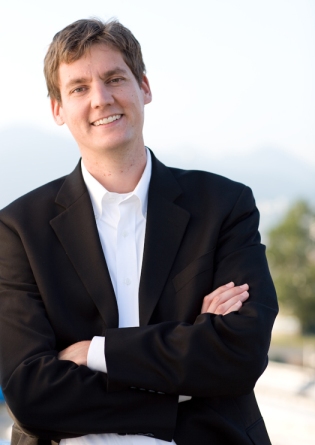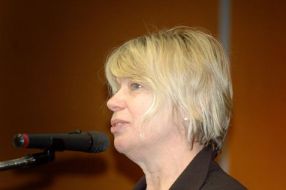Tagged: transportation
[Podcast] Dispatch from Rio: Brazil’s Urban Social Movement Demands Better Quality of Life

Protests in opposition to rising transit fares is part of a broader social movement demanding a better quality of urban life in Brazil. Photo courtesy Agencia Brasil.
This movement has opened up a new field of possibilities and what people are fighting for is a real democratic system. This movement is forcing a dialogue.
–Professor Cecilia Mello, Federal University of Rio de Janeiro
What began as protests against increases in public transit fares is part of a broader social movement challenging Brazil’s state policies, the deteriorating quality of urban life for the poor, and the highly uneven benefits derived from the country’s economic growth as the country prepares to host the 2014 FIFA World Cup and the 2016 Rio Olympic Games.
On the program, we hear from Dr. Cecilia Mello, a professor of social and cultural anthropology at the Federal University of Rio de Janeiro, about this rising urban social movement, the right to the city, and the conditions on the ground. We also discuss Brazilian cities in relation to the rural and peripheral areas of the country and indigenous land dispossession and resource extraction threatening traditional livelihoods.
The BC Election and What It Means for Cities
In British Columbia, cities are literally constructs of the provincial government, given power through provincial legislation. Cities have limited taxation abilities and they derive the large majority of their revenue from property taxes. And yet they are responsible for an ever-growing array of services and infrastructure as provincial and federal governments continue to download responsibility.
Charley Beresford is executive director of the Columbia Institute and oversees the Centre for Civic Governance, an initiative of the Columbia Institute. The institute works to foster leadership for inclusive and sustainable communities that value social justice, the environment, and the local economy.
On the program, we discuss the importance of progressive provincial policy for cities across British Columbia – and Canada. We’ll be discussing the environment, jobs, and the ‘big download’ facing cities as they deal with aging infrastructure and greater responsibilities.
Please note that this program was produced before the outcome of the May 14th BC Provincial Election.
[Podcast] Taking on the Premier: BC NDP’s David Eby on Transportation, Housing, and Provincial-Municipal Relations
 The BC NDP’s David Eby is running against BC Liberal Premier Christy Clark in the Vancouver-Point Grey riding on Vancouver’s westside in the upcoming provincial election.
The BC NDP’s David Eby is running against BC Liberal Premier Christy Clark in the Vancouver-Point Grey riding on Vancouver’s westside in the upcoming provincial election.
We discuss regional planning, education, housing, poverty reduction, and the importance of progressive provincial-municipal policies. In the 2011 Vancouver-Point Grey by-election, Eby came within 600 votes of Christy Clark in the seat previously held by former Premier Gordon Campbell.
David Eby is a lawyer and the former executive director of the BC Civil Liberties Association. He has also worked for Pivot Legal Society and is adjunct professor in the Faculty of Law at the University of British Columbia.
Subscribe via iTunes to have the weekly podcast downloaded automatically.
[Podcast] Getting From Here To There: Transportation Policy & Planning, Metro Vancouver’s Transit Future, and the UBC-Broadway Line
Subscribe via iTunes to have the weekly podcast downloaded automatically.
 What do you think about the proposed $2.8 billion UBC-Broadway subway line (and the economic case for it)? Will this come at the expense of other regional rapid transit projects? How would it shape the city’s transit accessibility and urban development trajectory? What are the lessons to be learned from the Canada Line experience?
What do you think about the proposed $2.8 billion UBC-Broadway subway line (and the economic case for it)? Will this come at the expense of other regional rapid transit projects? How would it shape the city’s transit accessibility and urban development trajectory? What are the lessons to be learned from the Canada Line experience?
On the podcast, Matti Siemiatycki discusses transportation policy, planning metro Vancouver’s transit future, and the UBC-Broadway line. Matti Siemiatycki is assistant professor at the University of Toronto’s Department of Geography and Program in Planning. His research focuses on transportation policy and planning and how large infrastructure projects are financed and delivered. He has authored many articles on these topics and is involved in the Public-Private Partnership Research Project, which graphically shows trends in the delivery of transportation projects through public-private partnerships (P3s).
[Podcast] Vancouver Green Party Councillor Challenges Vision Vancouver Policies
An in-depth interview with Vancouver Green Party Councillor Adriane Carr covering everything from affordable housing and transportation to her run-in with the City Manager and Vision Vancouver
Adriane Carr is the first-ever elected Green Party councillor in Vancouver. Councillor Carr has been in the news a lot these days, most recently for her run-in with the City Manager and Vision Vancouver Mayor Gregor Robertson and Councillor Geoff Meggs. She has been – and continues to be – a vocal critic of the Vision Vancouver-dominated City Council. In an in-depth interview, we discuss her concerns around the creation of city-subsidized market rental housing (STIR/Rental 100) and what she believes to be as Vision Vancouver’s attempt to redefine ‘affordable’ housing.
She has also been highly critical of the Vancouver Park Board and Vision-supported proposed joint operating agreement which would centralize funding distribution, among other changes, for community centre associations. She attempted to put a motion before Council to ask staff to explore the potential financial ramifications of this plan. Her motion was denied by the City Manager and Vision Vancouver, which we discuss. In addition, we talk about the city’s development trajectory and issues around transportation, and specifically, along the Broadway corridor.
Subscribe via iTunes to have the weekly podcast downloaded automatically.
[Podcast] The Working City: Future of Vancouver’s Economy
Subscribe via iTunes to have the weekly podcast downloaded automatically.

Looking west down the North Arm of the Fraser River from the Queensborough Bridge in New Westminister. (Photo by A. Longhurst)
Is Vancouver on track to become a resort town with a real estate-dependent economy with an overabundance of low-wage service jobs? Are we on track to be a hub for transportation, technology, and value-added industries? How do highly uncertain global economic and climate forecasts play into Vancouver’s economic outlook?
On this podcast, we continue the ongoing series, The Working City (listen to Part I), examining urban economic landscapes and the future of economic development. We hear three of perspectives on the future of Vancouver’s regional economy, including Bryn Davidson, a laneway house developer, Marc Lee, an economist at the Canadian Centre for Policy Alternatives, and Shane Simpson, a BC NDP MLA for Vancouver-Hastings. This discussion was recorded at the 2012 UBC School of Community and Regional Planning Symposium in February 2012.


